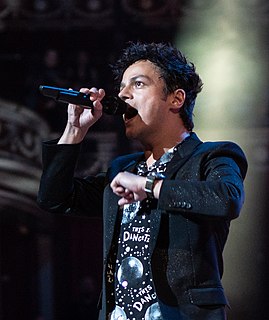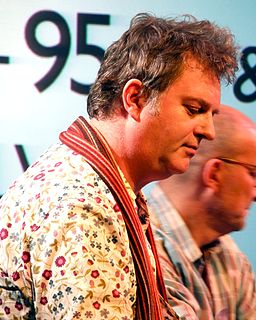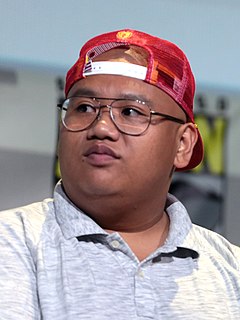A Quote by Francis Ford Coppola
Anyone who's made film and knows about the cinema has a lifelong love affair with the experience. You never stop learning about film.
Related Quotes
When I make a film, I never stop uncovering mysteries, making discoveries. When I'm writing, filming, editing, even doing promotional work, I discover new things about the film, about myself, and about others. That is what I'm subconsciously looking for when shooting a film: to glimpse the enigmas of life, even if I don't resolve them, but at least to uncover them. Cinema is curiosity in the most intense meaning of the word.
There's something magical about film, it's the ultimate for me, because it's kind of permanent - inasmuch as anything is. When I went to see Buster Keaton when I was about 14 and I came out of the cinema having really laughed at this film which had been made 50 years before, I thought: That's immortality. It's fantastic.
To me, a revolutionary film is not a film about a revolution. It has a lot more to do with the art form. It's a film that is revolting against the old established language of cinema that had been brainwashing the people for decades. It is a film that is trying to find ways to use sound and image differently.
More than my other films, Uncle Boonmee is very much about cinema, that's also why it's personal. If you care to look, each reel of the film has a different style - acting style, lighting style, or cinematic references - but most of them reflect movies. I think that when you make a film about recollection and death, you have to consider that cinema is also dying - at least this kind of old cinema that nobody makes anymore.
I think that's true of all cinema, that's why cinema is the great humanistic art form. Whatever the film is, it doesn't matter what the film is about, or even whether it's a narrative or figurative film at all, it's an invitation to step into somebody else's shoes. Even if it's the filmmaker's shoes filming a landscape, you go into somebody else's shoes and you look out of their lens, you look out of their eyes and their imagination. That's what going to the pictures is all about.
In narrative cinema, a certain terminology has already been established: 'film noir,' 'Western,' even 'Spaghetti Western.' When we say 'film noir' we know what we are talking about. But in non-narrative cinema, we are a little bit lost. So sometimes, the only way to make us understand what we are talking about is to use the term 'avant-garde.'






































